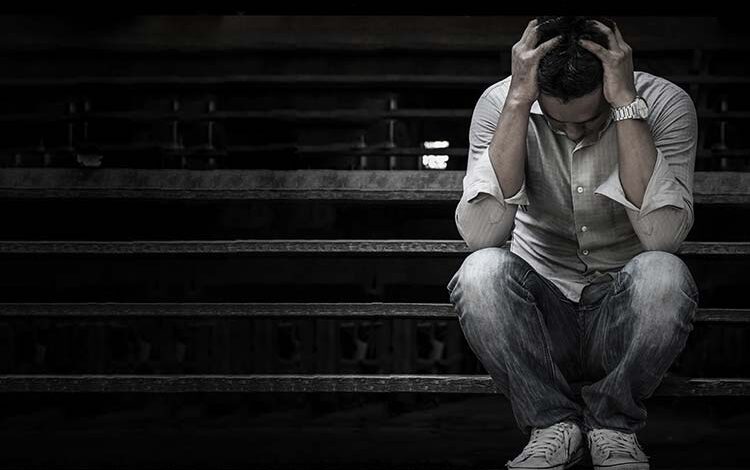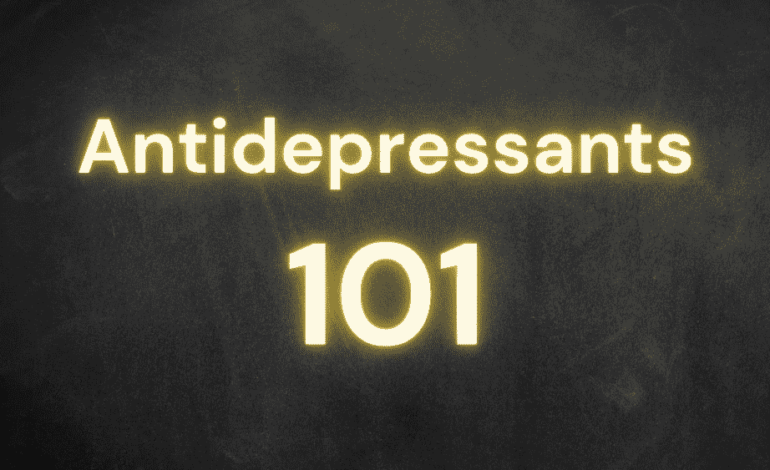Anxiety and Bipolar Disorder
The hope and vision of World Bipolar Day are to bring world awareness to the world about bipolar disorder and to eliminate social stigma. This mood disorder affects nearly 3% of the adult U.S. population each year.
World Bipolar Day (WBD) is celebrated each year on March 30th, Vincent Van Gogh’s birthday, who was posthumously diagnosed as probably having bipolar disorder.
Living with bipolar disorder may not be easy, but as van Gogh, himself once said: “The beginning is perhaps more difficult than anything else, but keep heart, it will turn out all right.”
Bipolar disorder, also commonly referred to as “manic depression” is a mood disorder characterized by alternating periods of elevated mood marked by periods of depression. The term “alternating” should be used loosely as many individuals may exhibit signs and symptoms of depression with one or two episodes of mania within a year. Alternatively, the manic episodes may be at the forefront of the disorder, with depressive symptoms appearing less frequently. The fact is that individuals with bipolar disorder do not have ricocheting moods but rather alternating moods that occur much less frequently than the mainstream media portrays. Bipolar disorder will often co-occur with anxiety disorders, which can often make each condition challenging to diagnose.
Mania and anxiety
Mania is marked by irritability, distractibility, rapid thoughts, pressured speech, and grand ideas. An individual may spend all night working or cleaning when they are in a manic state or exhibit more harmful behaviors such as compulsive shopping or gambling. Sometimes the racing thoughts are so severe during a manic episode that the individual will not sit still physically. They become agitated and are unable to keep a clear train of thought. Many individuals assume that mania is enjoyable and productive. Although many people do have a lot of energy and feel good during this phase, they often are overloaded with stress and experience very uncomfortable and unpleasant experiences and feelings.
This behavior can often overlap with symptoms of anxiety. Anxiety is triggered by unnecessary fear and worry and results in the inability to concentrate, trembling hands, and trouble sleeping. Individuals who are presenting with a manic episode may also be exhibiting symptoms of anxiety. Additionally, after an individual has a manic episode, they may become fearful and anxious about future manic episodes. It may be difficult for the untrained eye to differentiate a manic episode and symptoms of anxiety. When individuals have anxiety and bipolar disorder, they can experience excessive worry, obsessive thoughts, and compulsions that can trigger suicidal ideations and substance abuse.
Signs that you may have an anxiety disorder
- You excessively worry over everyday things, large and small
- You have trouble falling asleep or staying asleep
- You have frequent nightmares
- You have irrational fears of specific situations or objects
- You clench your jaw, bite your nails, experience tension headaches, or grind your teeth
- You experience constant stomach issues such as indigestion
- You experience feelings o restlessness or agitation
- You have trouble concentrating on simple tasks
- You are extremely self-conscious about being around crowds
- You strive for perfectionism
- You experience a lot of self-doubts
Signs that you may have bipolar disorder
- You experience a decreased need for sleep
- You experience feelings of restlessness or impulsivity
- You are easily distracted
- You feel overconfident in many situations
- You engage in risky and impulsive behaviors
- You experience racing thoughts
- You experience extreme feelings of fatigue
- You experience feelings of hopelessness
- You have problems concentrating and making decisions
Treatment regimens for bipolar disorder and anxiety
Although anxiety and bipolar disorder, specifically manic episodes share similar characteristics and symptoms, the treatment regimens vary drastically. Both disorders are treated with a combination of medication and psychotherapy. Cognitive behavior therapy and exposure therapy are two common psychotherapy approaches used for anxiety disorders and bipolar disorder. The goal is to teach healthy problem-solving skills and replace fear with relaxation techniques.
Bipolar disorder is always treated with medication plus or minus psychotherapy, whereas many forms of anxiety, depending on the severity, can be solely managed with psychotherapy. Medications for bipolar disorder include lithium, anticonvulsant mood stabilizers, and antipsychotics. Anti-depressants, specifically SSRIs, are the first-line medications to treat anxiety disorders. Benzodiazepines are rarely recommended and should only be prescribed for very specific anxiety disorders for a short period of time. SSRIs are sometimes used to treat the depressive episodes in bipolar disorder; however, extreme caution should be practiced as these can trigger manic episodes. As a result, if antidepressants are described for a bipolar disorder they are usually given in combination with an antipsychotic or a mood stabilizer.
What can you do for your bipolar disorder?
Bipolar disorder can be debilitating and affects 5.7 million American adults in a given year, making this one of the leading mental health disorders. Recognizing bipolar disorder can be difficult for some because they may be misdiagnosed as having unipolar depression, anxiety, attention deficit disorder, or a personality disorder such as borderline or narcissistic personality disorder. Bipolar can take a while to diagnose correctly because it presents very differently in each individual. Some individuals will show signs of depression for years until they are placed on anti-depressants and then exhibit mania episodes. Although there is no cure for bipolar disorder, symptoms are manageable with the proper medication and often therapy sessions.
Seek help from an experienced provider: If you are exhibiting any of the many signs and symptoms of bipolar disorder, you must seek help from a physician who has experience in treating bipolar disorder and seek a second opinion if needed as this disorder can take a few visits to diagnose.
-
Keep a detailed history:
When meeting with your doctor or therapist for the first time, they can only observe your present state of mood, and therefore they cannot see 90% of the symptoms that occur otherwise. Therefore it is very important for you to provide a very detailed history of your symptoms, and it may be helpful to write your moods down as they come. Being open and honest about your symptoms can make diagnosis and treatment much easier.
-
Seek help immediately:
Longitudinal studies have shown that the average time from the initial onset of symptoms to an accurate bipolar diagnosis is ten to twelve years. In other words, you may be feeling like you have depression or another disorder or are simply having a bad day. If you feel as if your moods are not normal, then you should seek help immediately. Many individuals wait to seek help because they feel their symptoms will go away, they are afraid of the stigma, do not have access to medical care, or don’t want to bother anyone.
-
You may change medications:
Keep in mind that you may have to try different medications until the correct one works for you. Mood stabilizers can take four to six weeks to work, and as a result, the initial medication management process does take time. You may have to try two to three medications.
-
Levels of care vary:
At the initial stages of treatment and assessment, you may be placed in a higher level of care, such as inpatient care or residential treatment. Your level of care depends on your severity of symptoms, such as whether you are a danger to yourself or others, your lack of control, ability to function, the presence of psychotic symptoms, living condition, and family support. In other words, many factors are assessed when a mental health professional is determining your level of care.




